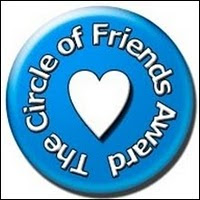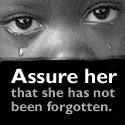I have a Christian confession to make…. The latest book from Max Lucado, ‘Outlive Your Life: You Were Made to Make A Difference ’ is the first book of his that I have ever read. I know! He is one of the most prolific and best-selling Christians authors of the last twenty five years, yet this is my first Max Lucado book!
’ is the first book of his that I have ever read. I know! He is one of the most prolific and best-selling Christians authors of the last twenty five years, yet this is my first Max Lucado book!
Here is the synopsis of this book:
We are common folk. We sit in the bleachers, eat at diners, change diapers, and wear our favorite team’s ball cap. Fans don’t wave when we pass. Servants don’t scurry when we come home. Chauffeurs don’t drive our cars; butlers don’t open our doors or draw our baths. Doormen don’t greet us, and security doesn’t protect us. We are regular folks.
And we wonder: Does God use people like us?
He did. God stampeded the first-century society with swaybacks, not thoroughbreds. Before Jesus came along, the disciples were loading trucks, coaching soccer, and selling Slurpee drinks at the convenience store. Their collars were blue, and their hands were calloused, and there is no evidence that Jesus chose them because they were smarter or nicer than the guy next door. The one thing they had going for them was a willingness to take a step when Jesus said, “Follow me.”
Are you more dinghy than cruise ship? More stand-in than movie star? More blue jeans than blue blood? Congratulations. God changes the world with folks like you.
Here is the biography of the author:
Max Lucado is a minister who writes and a writer who preaches. He and his wife, Denalyn, serve the Oak Hills Church in San Antonio, Texas. They have three grown daughters, Jenna, Andrea, and Sara; one son-in-law, Brett; and one sweet but lazy golden retriever, Molly.
And here is Pastor Lucado introducing this book:
To open his book about outliving your life, he tells a fable about Father Benjamin, who educated the inhabitants of a thriving island in everything from education to health; he built schools and clinics and dug wells. The captain of a ship who landed on the island wanted to meet Father Benjamin:
“I don’t see Father Benjamin. Please take me to where he lives.”
The trio talks alone again. After some discussion the chief offers, “Let’s go up the mountain.” They lead the captain up a steep, narrow path. After many twists and turns the path deposits them in front of a grass-roofed chapel. The voice of the chief is soft and earnest. “He has taught us about God.”
He escorts the captain inside and show him the altar, a large wooden cross, several rows of benches, and a Bible.
“Is this where Father Benjamin lives?” the captain asks.
The men nod and smile.
“May I talk to him?”
Their faces grow suddenly serious. “Oh, that would be impossible.”
“Why?”
“He dies many years ago.”
The bewildered captain stares at the men. “I asked to see him, and you showed me a clinic, some fish farms, and this chapel. You said nothing of his death.”
“You didn’t ask about his death,” the chief explains. “You asked to see where he lives. We showed you.” (pp. xx-xxi)
Pastor Lucado shares with us that we are all unique:
You’ve been given your life. No one else has your version. You’ll never bump into yourself on the sidewalk. You’ll never meet anyone who has your exact blend of lineage, loves, and longings. Your life will never be lived by anyone else. You’re not a jacket in an attic that can be recycled after you’re gone.
And who pressed the accelerator? As soon as one day is lived, voila, here comes another. The past has passed, and the good old days are exactly that: old days, the stuff of rearview mirrors and scrapbooks. Life is racing by, and if we aren’t careful, you and I will look up, and our shot at it will have passed.
Some people don’t bother with such thoughts. They grind through their days without lifting their eyes to look. They live and die and never ask why.
But you aren’t numbered among them, or you wouldn’t be holding a book entitled Outlive Your Life. It’s not enough for you to do well. You want to do good. You want your life to matter. You want to live in such a way that the world will be glad you did. (pp. 3-4)
We need to be aware of God’s signs:
God has posted his traffic signs everywhere we look. In the universe, in Scripture, even within our own hearts. Yet we persist in disregarding his directions. But God does not give us what we deserve. He has drenched his world in grace. It has no ends. It knows no limits. It empowers this life and enables us to live the next. God offers second chances, like a soup kitchen offers meals to everyone who asks.
And that includes you. Make sure you receive the bread.
And once you do, pass it on. After all, if we don’t who will? Governments don’t feed the soul. The secular relief house can give a bed, a meal, and valuable counsel. Buy we can give much more. Not just help for this life but hope for the next. (p. 39)
I love this illustration of how the Body of Christ needs to work together:
…We are in this together. We are more than followers of Christ, disciples of Christ. “We are part of his body” (Eph. 5:30 NCV). “He is the head of the body, which is the church” (Col. 1:18 NCV). “I am not his body; you are not his body. We – together – are his body.
But his body has been known to misbehave. The brain discounts the heart. (Academics discount worshippers.) The hands criticize the knees. (People of action criticize people of prayer.) The eyes refuse to partner with the feet. (Visionary thinkers won’t work with steady laborers.)
A clear case of mutiny on the body. (p. 45)
We need to stand up for the name of Christ:
Could you use some high-octane boldness? If you want to outlive your life, you could. As long as you are stationary, no one can complain. Dogs don’t bark at parked cars. But as soon as you accelerate – once you step out of drunkenness into sobriety, dishonesty into integrity, lethargy into compassion – expect the yapping to begin. Expect to be criticized. Expect to be mocked. Expect to be persecuted.
So how can we prepare ourselves? Simple. Imitate the disciples. Linger long and often in the presence of Christ. Meditate on his grace. Ponder his love. Memorize his words. Gaze into his face. Talk to him. Courage comes as we live with Jesus. (pp. 80-81)
I appreciated Pastor Lucado’s assessment of the Ananias and Sapphira situation in the Book of Acts:
As they carry Sapphira to join her husband in the cemetery, we shake our heads. Dare we wonder out loud what we’re wondering inside? Ask the question we all think? Since no one else will ask it, I will.
Was that really necessary?
Ananias and Sapphira deserved punishment, for sure. They deserved a stiff sentence. But the death sentence? Does the punishment fit the crime? What they did was bad, but was it that bad?
Let’s think about it. Exactly what did they do?
They used the church for self-promotion. They leveraged God’s family for personal gain. They attempted to turn a congregation into a personal stage across which they could strut.
God has a strong word for such behavior: hypocrisy. When Jesus used it, people ducked for cover. (p. 91)
We need to learn to not write off anyone; God can redeem anyone (look at what He did with Saul of Tarsus):
Don’t give up on your Saul. When others write him off, give him another chance. Call him brother. Call her sister. Tell your Saul about Jesus, and pray. And remember this: God never sends you where he hasn’t already been. By the time you reach your Saul, who knows what you’ll find. (p. 138)
We also need to learn to not label people, and to instead follow Jesus’ example:
Labels relieve us of responsibility. Pigeonholing permits us to wash our hands and leave.
“Oh, I know John. He is an alcoholic.” (Translation: “Why can’t he control himself?”)
“The new boss is a liberal Democrat.” (Translation: “Can’t he see how misguided he is?”)
“Oh, I know her. She’s divorced.” (Translation: “She has a lot of baggage.”)
Categorizing others creates distance and gives us a convenient exit strategy for avoiding involvement.
Jesus took a different approach. He was all about including people, not excluding them. “The Word became flesh and blood, and moved into the neighborhood” (John 1:14 MSG). Jesus touched lepers and loves foreigners and spent so much time with partygoers that people called him a “lush, a friend of riffraff” (Matt. 11:19 MSG). (p. 147)
I loved his advice from the chapter entitled ‘Pray First; Pray Most;’
The church still faces her Goliaths. World hunger. Clergy scandal. Stingy Christians. Corrupt officials. Pea-brained and hard-hearted dictators. Peter in prison is just the first of a long list of challenges too big for the church.
So our Jerusalem ancestors left us a strategy. When the problem is bigger than we are – we pray! “But while Peter was in prison, the church prayed very earnestly for him” (Acts 12:5 NLT).
They didn’t picket the prison, petition the government, protest the arrest, or prepare for Peter’s funeral. They prayed. They prayed as if prayer was their only hope, for indeed it was. They prayed “very earnestly for him.” (pp. 155-156)
He explains why we have trouble sometimes when we try to pray:
….Satan seeks to interrupt our prayers. Our battle with prayer is not entirely our fault. The devil knows the stories; he witnessed the angel in Peter’s cell and revival in Jerusalem. He knows what happens when we pray. “Our weapons have power from God that can destroy the enemy’s strong places” (2 Cor. 10:4 NCV).
Satan is not troubled when Max writes books or prepares sermons, but his knobbly knees tremble when Max prays. Satan does not stutter or stumble when you walk through church doors or attend committee meetings. But the walls of hell shake when one person with an honest heart and faithful confession says, “Oh, God, how great thou art.”
Satan keeps you and me from prayer. He tries to position himself between us and God. But he scampers like a spooked dog when we move forward. So let’s do. (p. 159)
I loved this description of someone that Max saw in person in 1979, someone that I admire greatly:
She wore her characteristic white Indian sari with a blue border that represented the Missionaries of Charity, the order she founded in 1949. Her sixty-nine years had bent her already small frame. But there was nothing small about Mother Theresa’s presence.
“Give me your unborn children,” she offered. (Opening words or just the ones I remember most? I don’t know). “Don’t abort them. If you cannot raise them, I will. They are precious to God.”
Who would have ever pegged this slight Albanian woman as a change agent? Born in a cauldron of ethnic strife, the Balkans. Shy and introverted as a child. Of fragile health. One of three children. Daughter of a generous but unremarkable businessman. Yet somewhere along the journey, she became convinced that Jesus walked in the “distressing disguise of the poor,” and she set out to love him by loving them. In 1989 she told a reporter that her Missionaries had picked up around fifty-four thousand people from the streets of Calcutta and that twenty-three thousand or so had died in her care. (p. 171)
In the back of the book is a Discussion and Action Guide; this book is perfectly suited for a small group study. I would recommend it highly for Christians of every persuasion and at every stage of their Christian walk.
This book was very easy to read, and Pastor Lucado’s writing style is very personable. I can certainly see how he has sold millions of books in the last twenty five years.
You can order this book here .
.
This book was published by Thomas Nelson Publishers and provided by them for review purposes.
















.jpg)


No comments:
Post a Comment